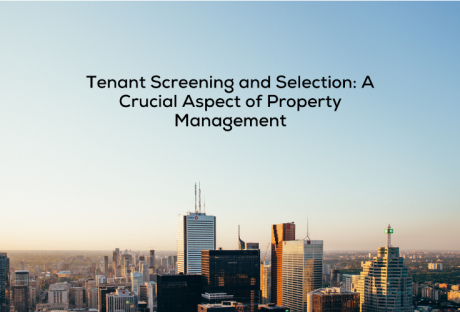Category: Real Estate
ContentRally is a leading source of reliable news and trending topics on Real Estate. Get hard-to-find insights and advice on Real Estate from industry-specific leaders.

Efficiency & Durability Comparison: Pipetite vs. Traditional Sealants
Efficiency and durability are two critical factors when evaluating sealants for building and construction. Traditional sealants, such as silicone, polysulfide, and polyurethane, have been used for many years and are known for their adhesive properties and range of applications. When comparing traditional sealants to options like Pipetite, it is important to consider the ease of installation, the ability to maintain a sanitary seal, and the long-term performance under various environmental conditions. Manufacturers of innovative sealing solutions claim enhanced performance, boasting features like a high elastic recovery rate and strong bonding properties, which could result in reduced maintenance costs and longer service life. Analyzing these claims through comparative studies can provide a clearer picture of which solutions stand up to the rigors of modern construction and which may fall short. Key Takeaways Sealant efficiency and ease of installation are critical in construction. Innovative sealants may offer advantages over traditional options. Comparative studies are necessary for informed decisions on sealant durability. Comparative Analysis of Sealant Efficiency The efficacy of sealants in commercial construction largely depends on their ease of application, bond strength, and resilience to environmental conditions. Contractors must choose products that not only promise longevity but also facilitate a straightforward application process. Ease of Application and Maintenance Pipetite products facilitate a sanitary, flexible seal around pipes and tubes, designed for easy installation without wall plates or caulking. In contrast, traditional sealants often rely on meticulous surface preparation and precise application to ensure proper adhesion. The maintenance of CSI pipetites is minimal, owing to their inherent design, which allows for movement while maintaining a seal, reducing the frequency of repairs and replacements. Adhesion and Bond Strength The bond strength of a sealant is critical to its performance. Pipetite's sealing solutions adhere securely even in the presence of movement. Traditional urethane and silicone sealants require a dry field for optimum adhesion, which can be compromised by applicator error or unfavorable conditions. Elastomeric sealants, by nature, can offer excellent adhesion and flexibility, but they must be applied correctly to achieve their full potential. Climate Resilience and Environmental Exposure An ideal sealant withstands outdoor weathering, temperature fluctuations, and exposure to solar radiation. Silicone sealants offer impressive resilience to ultraviolet light and temperature extremes but may degrade under constant outdoor weathering. In comparison, materials like Pipetite are engineered to endure harsh environmental conditions, including high humidity and accelerated weathering, without significant degradation, ensuring an extended service life and sustained efficiency under varying climatic stresses. Durability Assessment of Sealant Options Durability is a critical factor when comparing Pipetite to traditional sealants. This assessment focuses on longevity, tolerance to movement, and strategies to prevent failure, ensuring the sealed joints maintain integrity over their service life. Longevity and In-Service Performance Traditional sealants, including silicones and other chemistries, are formulated to withstand various environmental conditions over an extended period. In the context of durability, long-term performance is a vital measure, as it indicates how well a sealant will hold up under normal in-service conditions. Literature suggests that accelerated testing can approximate the durability of sealants like those used in structural sealant glazing systems. Similarly, Pipetite's design aims to offer lasting effectiveness, though its service life may vary depending on environmental exposure and material composition. Impact of Movement and Stresses on Performance Sealed joints are subjected to stress and movement, including cyclic movement, which can challenge a sealant's integrity. The performance of a sealant is heavily influenced by its modulus and stiffness, factors that dictate how it responds to these forces. Traditional elastomeric joint sealants typically offer flexibility to absorb such movements, whereas Pipetite relies on its unique, mechanically-sealed design to manage movement without compromising the seal. The durability under these conditions can predict potential premature failure or deterioration. Failure Analysis and Prevention To prevent failure, it's crucial to understand the modes of deterioration and cohesion loss within sealant systems. Failure analysis is the process of investigating breakdowns, often leading to improved formulations and application methods. Traditional sealant failures are commonly due to loss of adhesion or cohesive breakdown, whereas Pipetite's design minimizes reliance on adhesive qualities, theoretically reducing failure risks. Continuous development and improvement through research guide advancements in traditional and modern sealing solutions like Pipetite, aiming to enhance their repair profiles and extend their service life. Conclusion Pipetite's innovation offers distinct advantages in flexibility and adaptability compared to traditional sealants, contributing to its efficiency and durability. The economic aspect also favors sealant-free solutions, which can yield long-term cost savings with less frequent replacements and reduced downtime. It is crucial for industries, particularly those with systems experiencing extreme conditions, to consider the long-term performance and sealing efficiency of these options. Choosing between Pipetite and conventional sealants hinges on the specific needs for maintenance, environmental resistance, and overall longevity that the application demands. Read Also: The Latest Advancements In Technology For Intercooler Replacement Parts: User Benefits Explained How Portable Metrology Tools Are Making Manufacturers More Flexible HVO Fuel Uncovered: The Secret Fuel That Could Change Everything
READ MOREDetails
Don’t Forget To Plan For These 7 Hidden Costs Of Moving
Moving is a very expensive decision — whether you DIY with a rented truck or hire the professionals. You probably budgeted for the truck or moving company before you started packing. But these are just some of the most obvious expenses involved in the typical move. Unless you’re a seasoned professional or frequent mover, you may not realize plenty of other expenses are in your future. Things like child sitting, elevator charges, and parking tickets can up your costs significantly. You can usually rely on a line of credit when you’re faced with unexpected expenses. But when you have already put down $2,000 on a moving company, you may not have a lot of room left on this account. Part of managing your line of credit responsibly is learning to anticipate supposedly unexpected expenses before they happen. This article is critical reading for anyone who wants to limit how often they use their line of credit during a move. Planning early means you can start saving for these expenses in advance. 1. Child Sitting If you have children, you might have to think about getting a babysitter for your child. To save money, you can ask friends or family willing to look after your kids. Either way, removing your kids from the equation is easier for you and your movers. That way, you don’t have to worry about them being underfoot when you move heavy furniture. 2. Pet Boarding The same rules apply to your furry children. Keeping your dogs and cats away from the action protects everyone involved. 3. Takeout With your kitchen packed up, you will be relying on takeout and readymade meals far more often. You can save money by preparing frozen meals in advance, moving them quickly from one freezer to the other. Keep shelf-stable snacks handy, too. 4. Parking Tickets If your moving company parks illegally on the sidewalk or in a no-parking zone, you (not the company) will have to pay the ticket. Avoid this by seeking out a parking permit for your new neighborhood. 5. Security Deposit That hole your friends caused when they moved your antique armoire? If you can’t patch it up before you move, you might lose out on the security deposit you put down when you first moved in. DIY repairs might help you avoid losing your deposit, but even DIY work costs money. 6. Elevator Fees If you live in a condo, you will have to book the freight elevator to move your things. Depending on the condo company, they may apply a charge for this elevator. This fee is usually non-refundable and must be paid when you book the elevator. To make matters worse, most moving companies also charge elevator fees if you live on an upper floor. They may also charge stair fees if you live on the top floor of a walk-up. 7. Utility Setup Once you arrive at your new place, you have to set up utilities to heat and power your home. Some utility companies may require you to put down a security deposit before they start the service. They usually ask if you have poor credit or are a brand-new customer. These deposits can be costly, charging as much as twice your average monthly use. Keep this in mind as you create a moving budget. It’s better to struggle to save this amount than the opposite, being surprised by it when you go to hook up utilities! But if all else fails, your line of credit can pitch in. Read Also : 5 Reasons Why SMEs Use Courier Services
READ MOREDetails
The Power Of Heavy Machinery In The Construction Industry
Construction is on the rise across the United States. From single-family homes and apartment complexes to commercial projects, reports show that construction companies are going to have their work cut out for them in the years to come. Having the right equipment on hand to complete that work is the key to their success. Heavy machinery holds a great deal of power in the construction industry, making it essential for several reasons. Effective Project Completion Being able to effectively complete projects is one of the most basic benefits of having a diverse heavy equipment supply at a construction company's disposal. Without the proper equipment for the jobs at hand, construction companies are bound to experience problems and delays. They may spend more time than necessary trying to complete tasks with inadequate equipment, which could impact their clients' timelines as well as their own profits. With the heavy machinery they need, construction crews can complete projects faster and more effectively while remaining on budget. They'll be able to use their resources more efficiently, possibly reducing labor and material costs. Each piece of machinery has the potential to improve a company's performance, productivity, and bottom line. Cost-Effectiveness Cost-effectiveness is also a key consideration. Trying to complete a project with outdated, broken-down equipment can cause countless problems. Those include costly delays, wasted materials, increased workloads for crew members, and quality issues to name a few. Heavy machinery that's in good condition and suited to the specific requirements of a project greatly reduces those problems and the risks that come with them. It also reduces repair costs to further ramp up cost-effectiveness. Improved Safety Safety is crucial in the construction industry. Workers are up against numerous hazards on construction sites. Using the wrong types of equipment to complete certain tasks can exacerbate those dangers. Working with equipment that's in poor condition and prone to breakdowns makes matters even worse. Having the right heavy machinery on-site reduces the risks of injuries. Equipment that's in good repair improves worker safety as well. Versatility Having a variety of equipment on hand gives construction companies more versatility too. It allows them to accept projects with confidence that they'll be able to complete them. They won't have to limit themselves to only the projects they're equipped to handle. It also gives them the power to adapt to challenges and unexpected developments they face on the job. With the right heavy machinery in their arsenal, their projects can go smoothly no matter how many problems arise along the way. Professional Reputation Companies that have a selection of heavy machinery to work with tend to have more positive reputations as well. Those who are ill-equipped to handle certain jobs often end up with numerous complaints against them and low client satisfaction rates. On the other hand, construction companies that have the equipment they need to meet clients' expectations are more likely to develop reputations for excellence. That, in turn, can generate repeat business and draw in a steady stream of new clients. Equipping Yourself for Success Several types of heavy machinery are available for construction companies to take advantage of. Though not all companies need every piece of equipment on the market, having an extensive selection to work with can be advantageous. It helps construction crews to complete projects more safely and effectively. It also gives them greater versatility and leads to improved cost-effectiveness. All those factors enable them to better meet clients' demands and can help bolster their professional reputations. Read Also: Construction Safety Systems: Promoting A Safer Industry Is Prefabricated Metal The Future Of Warehouse Construction? 7 Common Construction Project Management Problems
READ MOREDetails
Maximizing Your Home Sale: Essential Tips And Home Inspection
Selling your home can be a pivotal moment in your life, often filled with anticipation and a fair share of anxiety. One key aspect of the selling process is the home inspection. This step can significantly influence the final sale price and the overall success of your transaction. Understanding the nuances of a home inspection and preparing your home accordingly can make a substantial difference. This article will guide you through this critical phase, ensuring you're well-equipped to maximize your home's value and appeal to potential buyers. Understanding Home Inspections A home inspection, as outlined by HomeLight, is a thorough, impartial evaluation conducted by a professional to assess various aspects of your property. This includes examining water damage, pest infestations, roof condition, electrical and plumbing systems, and structural integrity. The primary goal is to ensure the safety and habitability of the home. According to the American Society of Home Inspectors (ASHI), their Standard of Practice is a blueprint that helps inspectors focus on crucial areas ranging from exterior components to plumbing, emphasizing health, safety, and significant mechanical issues. Critical Factors In A Home Inspection: Exterior Evaluation: Inspectors scrutinize the outer part of your home, including the roof, gutters, siding, and foundation, for any signs of damage or decay. Electrical System Check: This is a critical area, as electrical problems can be expensive to repair and pose safety risks. Plumbing Assessment: Ensuring adequate water flow and functioning drains are crucial to avoid future mishaps. Interior Inspection: This covers the kitchen, bathroom, and HVAC system, among other areas, to ensure all components are in good working condition. Preparing For The Inspection Orchard Blog highlights the importance of proactive preparation for your home inspection. Addressing issues beforehand not only saves money but also expedites the selling process. Creating a checklist and systematically going through each item can be immensely beneficial. Essential Pre-Inspection Tips: External and Internal Inspection: Check for any visible damages or malfunctions in your home's exterior and interior, including walls, floors, ceilings, and appliances. HVAC System: Ensure your HVAC system is free of rust odors and that air filters are replaced. Water Damage Prevention: Vigilance in detecting signs of water damage under sinks and around appliances is vital. Declutter: Providing easy access to all areas of your home is essential for a thorough inspection. Timing And Legal Considerations Choosing the best time of year to sell your house can influence the success of your sale. Market trends often dictate the optimal selling period, with some seasons attracting more buyers than others. Additionally, understanding and preparing the necessary legal documents, such as a listing agreement, is crucial. This agreement between you and your real estate agent outlines the terms of your home's sale, including the agent's responsibilities and commission. The Day Of Inspection The inspection day is your opportunity to showcase your home in the best light. Ensuring the house is empty, providing all necessary documentation, and leaving keys to access various parts of the house are best practices that facilitate a smooth inspection process. Inspection Day Best Practices: Home Accessibility: Clear out personal belongings from critical areas for easy inspection. Document Preparation: Organize and present all relevant home documents for the inspector. Final Touches: Do a last-minute check to ensure everything is in order. A home inspection is a critical step in the home selling process, offering a chance to address potential issues and improve your home's marketability. By understanding what inspectors look for, preparing your home thoroughly, considering the best timing, and following best practices on the inspection day, you can significantly enhance your home's appeal to potential buyers. Remember, a well-prepared home attracts more buyers and commands a better price, ultimately maximizing your home sale. Read Also: Why Installing A Carport At Your Home Is A Good Idea? Choosing a Mortgage Broker for Your Home Loan Application Tired Of Seeing Your Old House? Here’s What You Need To Know
READ MOREDetails
Choosing the Right Real Estate Landscape in Worcester
The process of buying or selling a property can be both exciting and challenging, especially in a city as vibrant as Worcester. Whether you are a first-time buyer, a seasoned property investor, or someone looking to sell their home, choosing the right estate agent is a critical decision. Additionally, understanding the current market and available properties for sale in Worcester is equally important. In this comprehensive guide, we'll explore how to choose the right estate agents in Worcester and delve into the diverse array of properties available in this historic city. Choosing the Right Estate Agents in Worcester 1. Local Expertise Matters When selecting an estate agent, opt for one with a strong local presence and expertise in the Worcester property market. Local agents are well-versed in the nuances of the area, providing invaluable insights into property values, neighborhoods, and market trends. 2. Check Credentials and Reputation Research the credentials and reputation of potential estate agents. Look for accreditations, reviews from past clients, and any industry awards. A reputable estate agent with a solid track record is more likely to provide excellent service. 3. Tailored Services Consider estate agents that offer tailored services to meet your specific needs. Whether you're selling a property or searching for a new home, an agent who understands and accommodates your requirements will make the process smoother. Integrating a real estate agent CRM into their services ensures your unique needs are tracked and met with unparalleled attention to detail. 4. Transparent Fees Clearly understand the fee structure before committing to an estate agent. Look for transparency in fees and ensure that you are aware of any additional costs associated with their services. 5. Effective Communication Effective communication is key to a successful property transaction. Choose an estate agent who keeps you informed at every step of the process, providing updates on property viewings, offers, and negotiations. 6. Online Presence In today's digital age, a strong online presence is crucial. Evaluate an estate agent's website, online listings, and social media platforms. A well-maintained online presence reflects their commitment to marketing properties effectively. 7. Local Networks and Connections Estate agents with extensive local networks and connections can offer a competitive advantage. These connections can facilitate a smoother transaction process and provide access to off-market properties. Exploring Properties for Sale in Worcester Now that you understand how to choose the right estate agent, let's delve into the diverse range of properties for sale in Worcester. 1. Historic Charm in City Centre Worcester's city centre boasts a mix of historic and modern properties. From charming period houses along the River Severn to contemporary apartments, there's something for everyone in the heart of the city. 2. Peaceful Suburban Living If you prefer a more tranquil setting, Worcester's suburban areas offer a variety of family homes, often with larger gardens and proximity to reputable schools. 3. Riverside Retreats Properties along the scenic River Severn provide a unique and picturesque lifestyle. Riverside homes offer beautiful views and a peaceful ambiance while remaining conveniently close to the city centre. 4. Period Properties with Character Worcester is home to a range of period properties, including Tudor-style houses and Georgian residences. These homes exude character and charm, often featuring original architectural details. 5. Modern Developments For those seeking modern amenities, Worcester has seen the development of contemporary housing estates. These properties often come equipped with the latest conveniences and energy-efficient features. 6. Accessible Transportation Hubs Consider properties with easy access to transportation hubs, such as Worcester's two railway stations. Proximity to public transport can enhance convenience for daily commuting. 7. Potential for Investment Worcester's property market offers potential for investment, with a variety of properties suitable for buy-to-let opportunities. Conduct thorough research and work with your chosen estate agent to identify properties with good investment potential. Conclusion Choosing the right estate agents in Worcester and navigating the diverse properties for sale requires careful consideration and research. Whether you're drawn to the historic charm of the city centre, the tranquility of suburban living, or the riverside retreats along the Severn, Worcester has a property to suit every taste and lifestyle. By partnering with a knowledgeable and reputable estate agent, you can embark on your property journey with confidence, knowing that you have the expertise and support needed for a successful transaction in this captivating city. Read Also: Real Estate Agents In Dubai: Your Gateway To The Luxurious Property Market Your Toronto Real Estate Guide: Trends, Hot Spots And Key Players Wholesaling: Tips For Investors To Make It Big In Real Estate
READ MOREDetails
Your Toronto Real Estate Guide: Trends, Hot Spots And Key Players
Toronto is hot right now. It’s the fourth-largest in North America, trailing only Mexico City, New York and LA, and finally getting the recognition it deserves. It has been name-checked in hit songs (thank you, Drake), won recent pro sports titles (thank you, Raptors), and was dubbed by the New York Times as the “Quietly booming tech town” to rival Silicon Valley. It’s no wonder people are moving to Toronto in droves. In this article, let’s equip you with a few basic details about buying a home in the Six. Key Players If you aren't Toronto-born-and-bred, you may feel at a disadvantage breaking into the challenging real estate market. But shake that feeling aside. While you might feel bombarded with choices for representation, a little research will clear the air. You can check out what's widely regarded as the best real estate company in Toronto at the link provided. Toronto Real Estate: An Overview The first thing to know about Toronto real estate is that, compared to other North American markets, it’s relatively expensive. According to Oxford Economics, the city joins other buzzing markets like Vancouver, LA and NYC as one of the priciest places for housing on the continent. But the trade-off is worth it: Torontonians enjoy low crime rates, clean civic spaces, abundant amenities and a world-class transit system. As you dip your toes into Toronto home hunting, keep a close eye on market fluctuations. After a series of Bank of Canada rate hikes, demand showed signs of slowing early this year. However, by April, local news reported a rebound with a 44% rise in the volume of sales month over month. It’s impossible to tell where the market goes from here (likely up), so work with an experienced real estate company to determine the ideal time to strike. A Lay Of The Land: Hot Spots And Up-And-Coming Neighbourhoods Toronto is a city of neighbourhoods, each with its own flavour, cultural/historical significance and demographic makeup. Hot spots in the western part of the city, like Queen West, Ossington and Parkdale, skew younger – with young professionals rubbing elbows at swanky bars and hip eateries. Meanwhile, hot spots to the east like Leslieville, Beaches and Danforth Village sport more of a family feel –with sprawling parks, good schools and all-ages venues. Dotted throughout downtown Toronto, you’ll also find cultural neighbourhoods and ethnic enclaves: Chinatown, Little Italy, Koreatown, Little Portugal and Little India, among others. If you head a little outside of the dense central areas, you can find up-and-coming neighbourhoods. These include Scarborough Village, Bloordale Village and the Junction Triangle. However, a word of caution: For up-to-date information on smart real estate opportunities, don’t rely on an internet article as trends are liable to change; instead, ask knowledgeable professionals about their choices for the best up-and-coming areas to buy. Toronto is booming – and, by all indications, it will continue to boom in the coming decades. To strike while the iron's hot, connect with expert real estate agents and buy your slice of the big city. Read Also: The 7 Most Common Email Marketing Mistakes Identify Malicious Emailers With Online Tools Types Of Objections In Sales And How To Overcome Them With An Email Delivery Test?
READ MOREDetails
Tenant Screening And Selection: A Crucial Aspect Of Property Management
Finding and selecting quality tenants is crucial for property managers. The success of your investment relies heavily on who you have living in your units. Proper tenant screening and selection help minimize risks and maximize returns. In this article, we’ll explore key elements of the tenant selection process. We’ll go over how to screen applicants, spot red flags, check references, evaluate credit, and choose ideal tenants. Let’s get started! Overview Of Tenant Screening Goals Thorough tenant screening serves several important goals: Identify responsible tenants who pay rent on time Avoid problem tenants who could disturb others or damage property Verify applicants are who they claim to be Evaluate the ability to afford rent based on income and debts Check backgrounds for any reasons of concern Select tenants who will follow rules and fulfill lease terms Screening is your chance to assess applicants’ qualifications and compatibility before approving them. Use it to gain a 360-degree view informing your leasing decision. The Role Of Property Management Companies In Los Angeles Real Estate Finding and retaining good tenants is crucial for property owners and managers everywhere, but tactics can vary by location. For instance, property management companies in Los Angeles have insight into tenant preferences and screening practices effective for the area. Factors like rental price averages, employment demographics, and housing regulations specific to LA impact local tenant selection approaches there versus other cities. While core principles remain constant, optimizing your tenant vetting process may involve fine-tuning your metro area. Components Of The Tenant Screening Process Comprehensive screening includes several key steps: Detailed Rental Application Have applicants complete a comprehensive rental application covering things like: Full legal name and contact details Social Security Number for credit/background checks Current and past home addresses Employer name, income, position, time employed Personal/professional references with contact info Bank account details for payment processing Vehicle information like make, model, year Emergency contact person details Any relevant remarks about qualifications, special requests, etc. Thorough applications provide a foundation of info to verify and evaluate applicants. Identity Verification Check IDs like driver’s licenses to confirm applicants are who they claim to be. Comparing names, photos, and addresses helps avoid fraud. Income Verification Verify income levels match what’s stated on the application. Request recent paystubs, tax returns, and bank statements as evidence. Income should adequately cover rent and other costs. Employment Verification Speak with the stated employer's HR department to confirm the position, dates employed, and salary. Beware if details seem shaky. Rental History Checks Contact previous landlords to check payment history, lease violations, damages, complaints, evictions, etc. Look for consistent on-time payments. Beware of frequent moves, evictions, or unpaid rent. Credit Checks Run a thorough credit check to verify your credit score, current debts, and any negative marks. Watch for unmanageable debts, court judgments, and bankruptcies. Background Screening Perform criminal and eviction record screening through approved channels to uncover any serious offenses or causes for concern. Personal Reference Checks Contact 1-2 references provided to assess the applicant’s reliability and character from people who know them. Pet Screening If applicants have pets, request veterinary records to confirm they are licensed and vaccinated. Also, verify breeds allowed per property rules. Be sure to follow fair housing laws throughout the screening process and avoid discrimination. Focus objectively on qualifications and ability to meet lease terms. Consulting Tenancy Databases Various rental industry databases help identify past tenancy issues reported by other landlords and property managers: Eviction Records Damage/Complaint Reports Rent Payment History Lease Violations Prior Evictions/Collections While costly, these databases provide an added layer of rental background insight from an impartial nationwide source. They can reveal serious red flags not evident elsewhere. Balancing Tenant Screening Elements Each screening component provides important pieces of the full picture. But avoid putting too much weight on any single factor. For instance, a low credit score doesn’t necessarily mean the person won’t pay rent reliably if other factors check out. And someone with an old petty misdemeanor isn’t necessarily high-risk if they have great landlord references. Consider the full scope - credit, background, income, rental history, interview impressions and references for a balanced decision. Don't let one element override others without due consideration. Strategies For Choosing The Best Tenant Picking the ideal tenant involves balancing several factors. The ability to afford rent is of course essential. Tenants need a stable income adequate to cover the rent plus other costs. However, also consider their income growth potential, not just current earnings. Look at their track record too. Do they have a solid history of paying on time, maintaining units well, following rules, and keeping good relationships with past landlords and neighbors? Consistency in meeting obligations predicts future behavior. Also assess their responsible character based on the full application, background checks, interview, and references. Do they seem conscientious, honest, and reasonable? Shared values matter for a good fit. While an imperfect credit score does not preclude someone, evaluate if they are actively managing income and debts responsibly regardless of past issues. Furthermore, consider lifestyle compatibility with the property and community. Will their habits mesh well? Similar priorities and standards make for an easier relationship. Avoid fixating on any single factor when choosing tenants. Seek those who balance financial ability, compatibility and character. This leads to positive partnerships that serve both parties' needs. Taking a big-picture view helps identify tenants who will be assets to your property and business. Setting New Tenants Up For Success Once selected, help tenants start strong by: Providing a detailed move-in checklist covering rules, contacts, procedures Clearly explaining policies before signing the lease to set expectations Assisting with utilities connections and community amenities access Offering a tenant portal or app for easy maintenance requests Following up after move-in to ensure satisfaction Proactive support fosters longer and happier tenancies benefitting all parties. Ongoing communication, responsiveness and periodic check-ins help too. Dealing With Rejection Decisions Carefully Rejecting applicants can be uncomfortable. But follows key principles: Be objective - based solely on qualifications, not personal factors Stick to facts - explain specifically how criteria were unmet Follow Fair Housing laws - no discrimination based on protected classes Maintain privacy - don’t discuss decisions publicly Respond promptly - let them know quickly so they can make other plans Rejection is just part of the screening process. Handling it properly avoids fair housing violations while preserving your business reputation. FAQs What Are The Standard Tenant Screening Fees? Typical screening fees range from $30-$75 per applicant to cover criminal/eviction checks, credit reports, reference checks and processing time. Some landlords charge slightly more for deeper screening. When Should I Require A Security Deposit? Requesting a security deposit equal to 1+ month's rent is common at lease signing to cover any damages and provide financial security. Make sure deposits comply with state laws. What Screening Practices Could Expose Me To Fair Housing Violations? Avoid discrimination based on protected characteristics like race, gender, religion, disabilities, national origin, or family status. Focus objectively on qualifications alone. If A Tenant Stops Paying Rent Suddenly, What Are My Options? You can issue pay or quit notices as a formal demand for payment. If they fail to pay after proper legal notice, you may proceed with formal eviction filings to reclaim possession. Key Takeaways Tenant selection has a huge impact on your investment's success. Screen diligently by: Reviewing detailed rental applications Running background checks Verifying incomes and employment Checking references thoroughly Interviewing thoughtfully Consulting industry databases Balancing all factors objectively This identifies responsible tenants who pay reliably, follow rules, and maintain properties well. Avoiding just a few problem tenancies through careful selection preserves your income and asset values in the long run. Finding ideal tenants is crucial, but takes diligence. A consistent screening process protects your investment and leads to longer, more positive tenancies for all. Invest time upfront to avoid major headaches later on. Your perfect tenant match is out there! The solid screening takes time but adds tremendous value. Your ideal tenant match is out there! Read Also: 10 Rights You Have As A Tenant That Your Landlord Won’t Tell You About Investing In Property Is Investing In Your Future
READ MOREDetails
Wholesaling: Tips For Investors To Make It Big In Real Estate
Real estate wholesaling is an increasingly popular way for investors to generate profits without taking ownership of a property. To do this, investors identify undervalued homes and transfer their purchase contracts to another investor. Successful execution of this strategy depends upon your ability to connect with cash buyers and build a list of them. Consult a real estate attorney in your area to understand any relevant legal restrictions that might exist, and read the following information carefully. Finding Deals To cite simply, wholesale real estate allows investors to quickly purchase and sell properties without investing a significant amount of their funds in each property they buy or sell. Instead of spending time and money fixing up properties, find investors willing to purchase them through wholesale deals and assign the contract of that home’s sale under wholesale terms to this investor. However, this must be done before trying to turn a profit from them by themselves, wholesalers contract with homeowners looking to sell below-market-value homes. This eventually results in earning themselves an assignment fee as payment, usually a percentage of its sale price, for their work. Some wholesalers find sellers by driving through neighborhoods and noting homes that are for sale, in foreclosure, vacant, and in disrepair. This approach can be particularly successful after natural disasters when distressed property owners are eager to offload their properties quickly. Other wholesalers use property tax records to locate owners of particular houses so that they may contact them directly. Contracting with Sellers Real estate wholesaling offers investors a way to generate profit without needing to purchase and renovate properties themselves. This investment strategy involves finding undervalued properties and contracting with their owner to sell them at higher prices to another investor, so it's important to learn wholesaling even if you’re a beginner. When performed properly, real estate wholesaling can be lucrative if done successfully. However, investors must understand its associated risks before embarking on this path of investing. Once you have found a property you wish to invest in, consult a lawyer on creating a wholesale contract. While this process can be complex and time-consuming, establishing the necessary documents early is crucial to prevent problems down the road. Assume you're a wholesaler who stumbles across an unattractive house for sale by an owner that needs major repair work; since the owner is elderly and lacks resources to fix it herself, they agree to sell it to you for $100,000, and you reassign the contract to an investor who wants to do the rehab work themselves. You then make a 10% profit when selling back to him later on. Wholesale can benefit everyone involved – especially the neighborhood! In this instance, a distressed homeowner was relieved from his property while making money through wholesale. Wholesalers made extra profit, and rehabbers got an amazing bargain on an unwanted home to flip. Marketing to Cash Buyers Cash buyers can close quickly due to not needing a mortgage or loan approval, making real estate wholesalers ideal targets as they can make more money if the deal goes through quickly. Wholesalers employ various marketing techniques like these when looking for cash buyers, such as direct mailing campaigns that target homeowners behind on mortgage payments or facing foreclosure. They may receive a tentative list of pre-foreclosure, distressed, or delinquent properties fetched from public records or personalized data providers before sending postcards or letters offering them solutions by buying their property at a discount and reselling it later. Marketing distressed properties to investors is another effective strategy for finding cash buyers. Many real estate investors maintain websites or social media pages where they post listings of available properties. In contrast, others attend networking events to connect with fellow investors. This approach can provide wholesalers with an ideal way to expand their network while simultaneously finding potential buyers for properties they acquire. Real estate wholesaling can also assist in revitalizing neighborhoods by selling rundown properties to new families at reduced prices, creating jobs, and improving the overall quality of life in an area. Unfortunately, critics of this form of investing claim it has an adverse effect on local housing markets by encouraging investors to purchase properties at once and displace long-time residents from their neighborhoods. Closing the Deal Once a property is under contract and assigned to an end buyer, the final step in closing it should be closing the deal. Real estate wholesalers often work with title companies as an impartial third party that handles closing, clears the title, and facilitates the transfer of ownership between the original seller and end buyer. Once the closing has occurred, you will receive your cash from the end buyer and can use that to purchase more properties wholesale – this is how real estate wholesaling works and allows many people to enter this industry without needing a license or even owning property themselves. Wholesale property transactions carry some risks – however, they can be an excellent and legitimate business strategy when conducted properly. The main challenge of wholesaling lies in finding deals for qualified investors to purchase. This can be accomplished via social media marketing, real estate investor groups, and networking with other real estate investors in your locality. Conclusion According to this discussion: https://www.quora.com/What-is-a-good-example-of-a-contract-for-wholesaling-a-property, determining the value of a property before signing a contract is key in a wholesale property. You can do this through market research and by looking at comparable sales. Be upfront with sellers you work with about your intentions; explain to them the process involved and how you will assign their contract to an end buyer – to prevent them from feeling scammed or duped by your actions. Last but certainly not least is to cultivate a solid network of cash buyers that you can reach out to when you have properties ready to assign. You can do this via various online and offline marketing channels like social media, real estate investment groups, and networking at local REIA meetings. Having this ensures a continuous profit from the wholesale real estate business. Wholesale property investing offers new real estate investors an invaluable chance to gain experience and learn about the industry. Still, it is vitally important that they conduct adequate research on its risks before getting involved in wholesale property deals. Read Also: Entering The Real Estate Market For Beginners: A Guide To Navigating The World Of Property Investment Real Estate Agents In Dubai: Your Gateway To The Luxurious Property Market Using Direct Mail To Build Trust With Real Estate Prospects
READ MOREDetails
What Does It Cost To Lease Office Warehouse In Woodbury?
Estimating the cost of leasing space in a business building could appear simple at first. Following your team's decision to rent a commercial facility, you negotiate the terms and price, sign the lease, and vacate the property. As it happens, it takes diligence and the assistance of a tenant broker to properly comprehend a business lease. Which party, you or the landlord, will be in charge of paying the insurance and property taxes? Who is going to cover the utility bills? Who will pay for the costs of upkeep? You must be clear about the type of business lease that you are signing to get the solutions to those crucial questions. Getting Started On Leasing Warehouses… When leasing out office space, a landlord has a variety of business property lease options at their disposal. You will be more savvy during any Woodbury office warehouse for lease negotiations, and your firm will be able to better manage monthly spending if you are aware of the variations between each form of business lease. Let us go over the various kinds of leases for commercial real estate so you can prepare for the terms and know how to bargain for a better deal. The following lists typical descriptions for each form of lease. It is important to remember that each category of lease will provide a renter with an idea of what to expect financially, but it is merely an estimate, and there are no hard and fast regulations. All leases are negotiable. Therefore, the sole means of assurance about the cover costs is to go over the terms of the lease in detail with your leasing broker and lawyer. Gross Lease Or Full-Service Lease If you sign a gross lease or, as we popularly say, a full-service lease, you have to pay the basic rent. The additional building costs of an office warehouse, such as insurance, real estate taxes, and maintenance fees, are often covered by the landlord. This usually translates into somewhat high rental prices, but you, the renter, just get one bill that takes care of all the essential office expenditures. Tenants who prefer not to get engaged in the day-to-day operations of an office will find this simpler. Some tenants still have to pay their fair share of running expenditures throughout their base year, though, in some full-service gross leases. This sets a cap on the amount of additional rent that a landlord must provide for tenants' costs. Whatever the case, be sure to carefully review your gross lease to see whether the agreement has any stipulations, such as extra costs. Know more about gross leases here. Net Leasing Of Office Warehouse The term "net lease" describes a type of lease for commercial property. Typically, net leases require tenants to cover a certain percentage of the building's operational costs, such as insurance, property taxes, and common area maintenance (CAM) fees. Single, double, and triple net leases are among the types. The amount of financial liability that the landlord transfers to the tenant varies depending on the kind of net lease. Landlords of commercial real estate usually compute the pro-rata portion of running costs for each tenant as follows: They take the overall cost of operation per square meter for all the building's rentable space. Afterward, they distribute that amount among the tenants according to the portion of the building that each renter occupied. Triple Net Lease In essence, a three-tier net lease is the reverse of a gross rental. The tenant (you) agrees to cover all running costs of the commercial property. This includes building insurance, property taxes, maintenance costs, and other costs in addition to rent and utilities. Triple net leases often have lower monthly rental rates because the tenant is covering the operating costs. NNN leases frequently have longer terms and include clauses that allow for future rent increases. Some tenants attempt to terminate their leases or renegotiate them when maintenance costs exceed their expectations. Preemptive landlords of any office warehouse will utilize a “bondable” net lease, meaning that it cannot be extended past its expiration date or have the rental rates changed. Double Net Lease Rent, utilities, property taxes, and building insurance are all the tenants' responsibilities under a double net lease. However, the cost of structural upkeep (https://ccpia.org/preventive-maintenance-at-commercial-buildings/) for the building is directly covered by the landlord. Base rent is often lower than in other net leases since the tenant bears additional costs. It is common for landlords who rent out office buildings to several tenants. The reason is to equally split the costs of building insurance and property taxes. One Net Lease Most tenants have to pay property taxes in addition to rent and utilities under a single net lease. The landlord covers property insurance and upkeep costs. Take care to distinguish between a net lease and a single net lease. A single, double, or triple lease of an office warehouse falls within the category of net leases. Read Also: Property Investment Success Stories 6 Tips On How To Pay Off Your Tax Debt Investing In Property Is Investing In Your Future
READ MOREDetails
The Beauty And Durability Of Hardwood Floors A Comprehensive Guide
When it comes to flooring options for your home, hardwood floors have always been a popular choice. Not only do they add an elegant and timeless appeal to any space, but they also offer durability and versatility. In this article, we will delve into the world of hardwood floors near me, exploring their various aspects, benefits, and maintenance requirements. The Charm of Natural Hardwood Hardwood floors, often made from oak, maple, cherry, or walnut, bring the beauty of nature into your home. These floors exude warmth and character, with each plank bearing unique grain patterns and natural colors. Types of Hardwood Flooring There are two main types of hardwood flooring: solid hardwood and engineered hardwood. Solid hardwood is milled from a single piece of wood and is known for its longevity. Engineered hardwood, on the other hand, consists of multiple layers and is more resistant to moisture, making it suitable for various environments, including basements. Hardwood Floor Installation Installing hardwood floors is a significant investment; proper installation is crucial for longevity. The process involves subfloor preparation, moisture testing, and the actual installation of the planks. Hiring a professional is often recommended to ensure a flawless finish. Advantages of Hardwood Floors Hardwood floors offer several advantages that make them a preferred choice among homeowners: A. Timeless Beauty The natural charm of hardwood never goes out of style. Whether you choose a classic oak or a rich walnut, hardwood floors can complement any interior design. B. Durability Hardwood floors are known for their durability and can withstand heavy foot traffic for generations with proper care and maintenance. C. Easy Maintenance Maintaining hardwood floors is a breeze. Regular sweeping and occasional mopping keep them looking their best. D. Allergen-Free Unlike carpets, hardwood floors don't trap dust and allergens, making them an excellent choice for those with allergies. Related: Hardwood Timber Flooring: Gives a Classic Look to Your Home Choosing the Right Hardwood 1. Species Selecting the right wood species is crucial. Oak is popular for its durability, while cherry offers a rich, reddish hue. Consider your preferences and the room's lighting when making a choice. 2. Finish Hardwood floors come in various finishes, including matte, semi-gloss, and high-gloss. Choose one that suits your aesthetic preferences. 3. Budget Hardwood floors can vary significantly in price. Consider your budget when selecting the type and grade of hardwood. Maintaining Your Hardwood Floors A. Regular Cleaning Sweep your floors daily to remove dirt and debris. Use a damp mop for periodic cleaning. Avoid excessive water, as it can damage the wood. B. Preventive Measures Place rugs and doormats at entry points to reduce the amount of dirt and grit that enters your home. Felt protectors on furniture legs can prevent scratches. C. Refinishing Over time, hardwood floors may show signs of wear. Refinishing can breathe new life into them, making them look brand new. In conclusion, hardwood floors are a timeless and elegant choice for your home. Their durability, beauty, and ease of maintenance make them a valuable investment. With proper care, your hardwood floors can last for generations, adding warmth and character to your living spaces. Read Also: Flooring Installation Process Transforming Your Space With Elegance 6 Easy Ways To Make Your Home More Appealing To Buyers Restaurant Chair Trends: Classic And Contemporary Styles
READ MOREDetails
The Comprehensive Guide To Property Insurance Toronto
In today's world, securing your valuable assets is of paramount importance. Whether you own a home, a commercial property, or even a piece of land, it's crucial to protect your investment from unforeseen events. This is where property insurance comes into play. In this comprehensive guide, we'll delve into the world of property insurance ontario, exploring what it is, why it's essential, the different types available, and how to choose the right policy for your needs. Understanding What Is Property Insurance Property insurance is a financial product designed to safeguard your real estate investments. It provides coverage for damages or losses incurred due to various perils, including fire, theft, vandalism, natural disasters, and more. This insurance offers peace of mind by ensuring that you won't face financial ruin if your property faces unexpected damage or loss. As the name suggests, property insurance offers coverage against theft or damages to the property. The insured can use this insurance to keep his building structure safe along with the contents inside. Even if they rent or lease their property, they will still be covered against damages. Generally, property insurance provides coverage for the following: Accidental damages were made to the property or any of its structures. Burglary or theft that harms the content inside the house. Physical harm due to the negligence of any third party. The Importance of Property Insurance Property insurance coverage is quite essential when it comes to protecting your assets and offering financial protection. One cannot determine the risks that might come along with a new house construction. Hence, this insurance provides peace of mind by repenting for losses and damages: Protecting Your Investment Your property represents a significant investment of your time and money. Property insurance ensures that your investment is secure, even in the face of disasters. Without insurance, you could be left with insurmountable repair or replacement costs. While you might be worrying about the exceeding costs, insurance is actually quite affordable. Make sure to talk to your insurer once. Meeting Legal Requirements In many cases, property insurance is a legal requirement. Mortgage lenders often mandate insurance as a condition of granting a loan, and local regulations may also necessitate coverage. To make sure you don’t get into any legal trouble, this insurance takes all the load on itself. From property loss to article damages, these generally fulfill all your legal requirements. Types of Property Insurance Not all kinds of real estate insurance will serve your requirements. In order to make things work, you might have to consider getting the right kind of insurance. Hence, here are a few common types that generally provide coverage: Homeowners Insurance Homeowners insurance is tailored for those who own a house. It covers the structure of your home and its contents against a wide range of risks. This type of insurance can also include liability coverage if someone is injured on your property. It is one of the most commonly purchased types of insurance, and various lenders are open for homeowners insurance. Renters Insurance Renters insurance is designed for tenants. It covers personal belongings within the rented space and provides liability coverage. It’s an affordable way for renters to protect their possessions. However, the renter’s insurance is exclusive to cover the personal belongings of a tenant and everything that belongs to their rented house. Commercial Property Insurance Business owners can safeguard their commercial properties and assets with commercial insurance. This coverage extends to the building, equipment, inventory, and even business interruption. Availing this insurance is quite prudent for entrepreneurs who want to protect their working capital at the time of business damage. Landlord Insurance Just like your rentees need security, so do you. If you own rental properties, landlord insurance is essential. It provides coverage for damages to the building and can also include liability protection. It’s crucial for mitigating risks associated with renting property to tenants. Landlord insurance takes care of your entire property and the things you have left inside for tenants to enjoy. Flood Insurance Standard property insurance policies often exclude flood damage. For properties in flood-prone areas, purchasing separate flood insurance is crucial. But natural disasters are unpredictable situations and might happen anytime. Hence, you definitely need flood insurance coverage to protect yourself from such situations. Choosing the Right Property Insurance How do you know this particular insurance coverage is right for your house? After choosing one and investing all your money into it, you find that it is not covering your property expenses properly. Isn’t it such a big turnoff? To make sure that doesn’t happen, here are a few tips to ensure you get the best property insurance: Assessing Your Needs Before purchasing property insurance, assess your specific needs. Consider the type of property you own, its location, and the level of coverage required. Take into account factors like the value of your property and the potential risks it faces. After all, your insurance must be competent enough to serve your requirements. Comparing Policies Don’t settle for the first insurance policy you come across. Compare multiple policies, considering their coverage limits, deductibles, and premiums. Ensure that the policy aligns with your budget and provides adequate protection. And if it doesn’t, bring out the list and move on to the next one. Reviewing the Fine Print Carefully read the policy terms and conditions. Be aware of any exclusions or limitations that may affect your coverage. Ask questions if anything is unclear. In case you are still out of ideas, seek help from somebody who has opted for the same policy coverage. Their past experiences with the agency and the insurer will help you tremendously to take further steps. Parting Words Property insurance is a fundamental aspect of safeguarding your real estate investments. It provides financial protection and peace of mind in the face of unexpected events. By understanding the different types of property insurance and selecting the right policy for your needs, you can ensure that your valuable assets remain secure. Read Also: How Many Jobs Are Available In Property-Casualty Insurers? Property Valuation Software for Real Estate Appraisals Is Property-Casualty Insurers A Good Career Path?
READ MOREDetails
How To Secure Your Dream Home With A VA Loan
Purchasing a dream home often feels like a Herculean task. However, for veterans and service members, there's a silver lining in the form of a VA loan. While it's an enticing option with numerous benefits, how does one navigate its intricacies? Let's embark on a journey to understand the nuances of VA home loans and the steps to make your dream home a tangible reality. 1. A Glimpse into VA Home Loans: What Makes Them Unique? At its core, a VA loan is a mortgage option provided by private lenders but backed by the U.S. Department of Veterans Affairs. Think of this loan as a trusty steed, specifically bred for veterans, aiding them in their quest for homeownership. What sets it apart is the absence of a down payment. Stay updated on VA home loan rates to confidently explore the housing market and secure competitive terms when purchasing your dream home as a veteran. 2. Qualifying for the Loan: Meeting the Service Criteria The VA loan isn't a one-size-fits-all proposition. It's designed for a specific group: veterans, active-duty service members, National Guard members, and certain surviving spouses. Picture it as an exclusive club with specific entry criteria. To fulfill the eligibility criteria, one must meet service length requirements. It generally ranges from 90 continuous days during wartime to one hundred and eighty-one days during peacetime. Even a service length of six years in the Reserves or National Guard can be good. Knowing these prerequisites is the first step in the journey. SoFi experts say, “It is helping heroes find homes with VA home loans.” 3. The Financial Landscape: Navigating Credit Scores and Income While VA loans are known for their leniency, it doesn't imply a carte blanche approach. Lenders typically look for a credit score of 620 or higher, much like a filter ensuring the water (loan applicant) passing through is clean (financially sound). Furthermore, lenders scrutinize the debt-to-income ratio, ensuring borrowers aren't overextended. Envision it as a balance scale, weighing one's debts against one's income, aiming for equilibrium. Though each lender might have specific criteria, understanding these financial benchmarks ensures smoother sailing. Related: 10 Crucial Points To Master The Art Of Securing A Home Renovation Loan 4. House Hunting: Finding the Perfect Abode With the knowledge and potential loan assurance, the exciting phase begins: finding your dream home. VA loans are versatile, accommodating various property types, whether suburban houses, city condos, or rural homesteads. However, the chosen property must be the borrower's primary residence. Consider this as a quest, where you're not just seeking a house but a haven. Collaborate with real estate agents familiar with VA loans, as their expertise can be invaluable in locating properties that meet VA guidelines. 5. The Final Stretch: Securing the Loan and Closing the Deal Once the dream home is in sight, the culmination of the VA loan process begins. It starts with the property's appraisal to ensure its value aligns with the loan amount. Picture this as a final quality check, ensuring your chosen home is a worthy investment. Following this, all required documents are gathered, including income statements, service proof, and property details. The lender then reviews these details, and if all sails smoothly, loan approval is granted. The last step is closing the deal, where you officially secure your dream home, fulfilling the quest. Conclusion VA loans are more than just financial instruments; they're a token of gratitude, a bridge connecting veterans to their dream homes. As a part of the service, the members or veterans, when you envision the future, can you see your dream home on the horizon? If yes, perhaps the VA loan is the compass guiding you toward it. Happy house hunting! Read Also: Understanding Conforming Loan Limits In California: Unlocking Home Financing Opportunities Ways To Apply For A Personal Loan & The Reasons To Opt For This Loan. How A Business Loan Helps Business People In 2023
READ MOREDetails
















